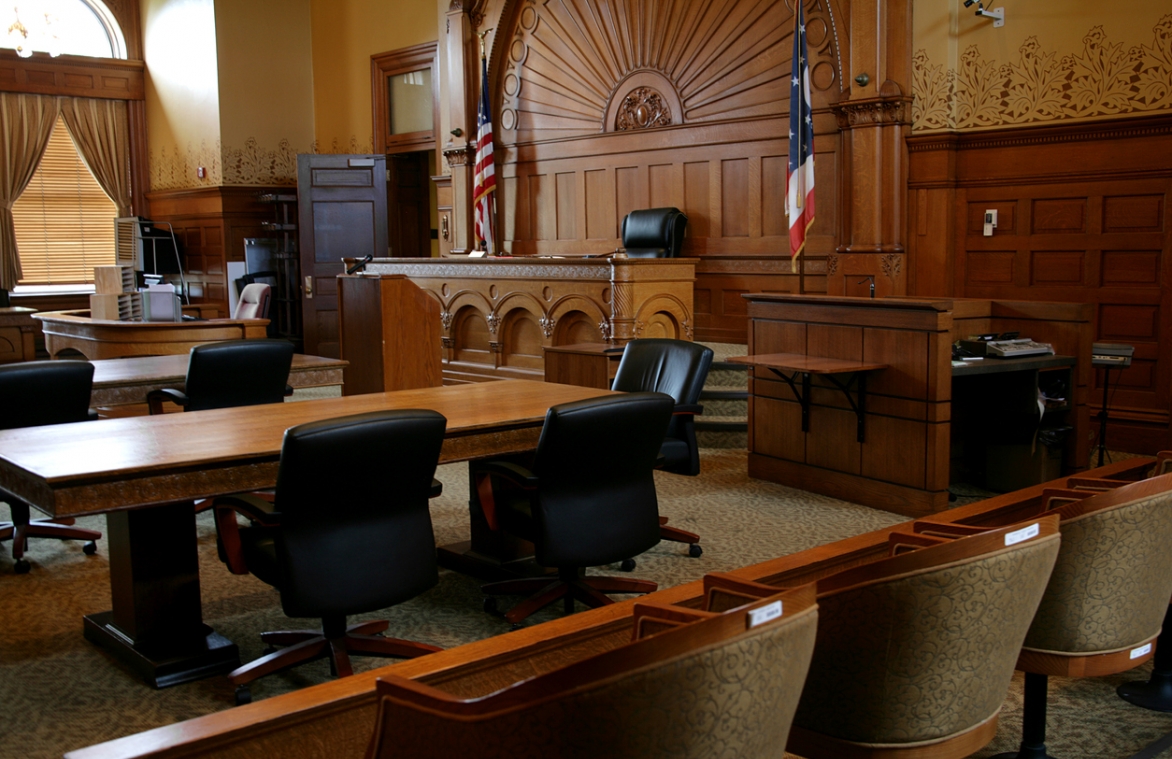A New York law prohibiting people from speaking about trials within 200 feet of courthouses violates the First Amendment, a federal district court has ruled.
The court reasoned that although such a law furthers a compelling interest in preserving the integrity of judicial proceedings, it is not narrowly tailored enough to satisfy constitutional review.
The controversy over the law began in December 2017 when Michael Picard stood outside the Bronx County Hall of Justice holding a sign that read “Jury Info” and flyers that read “No Victim? No Crime. Google Jury Nullification.”
Jury nullification refers to a phenomenon when jurors refuse to follow the law.
A New York State court officer took Picard into custody after Picard ignored repeated requests to move away from the courthouse. The officer said Picard had violated the following New York law that read:
A person is guilty of criminal contempt … when he engages in any of the following conduct:
…
On or along a public street or sidewalk within a radius of two hundred feet of any building established as a courthouse, he calls aloud, shouts, holds or displays placards or signs containing written or printed matter, concerning the conduct of a trial being held in such courthouse or the character of the court or jury engaged in such trial or calling for or demanding any specified action or demonstration by such court or jury in connection with such trial.
However, an assistant district attorney declined to prosecute the charge because of insufficient evidence. Picard then filed a lawsuit in federal court, on April 5, 2019, alleging that the law violated the First Amendment.
U.S. Senior District Court Judge Denise L. Cote agreed with Picard in her July 29 opinion in Picard v. Clark. The judge noted that the law was a content-based restriction on speech, as the law “is triggered when the speaker engages in speech that concerns the conduct of a trial that is ongoing in an adjacent courthouse.”
As such, Cote subjected the law to strict scrutiny, the highest form of judicial review. The government asserted that the law served a compelling interest in preserving the integrity of judicial proceedings. The judge agreed with this argument but still found the law unconstitutional because “the defendants have not shown that the state must criminalize speech in this way to protect the integrity of ongoing trials.”
The judge wrote that there are existing laws on jury tampering and blocking access on public streets.
Cote determined that it is the government’s “burden to prove [the law] is necessary to protect the fair administration of justice.” According to the judge, the government failed to meet its burden.
David L. Hudson Jr. is a professor at Belmont University College of Law who writes and speaks regularly on First Amendment issues. He is the author of First Amendment: Freedom of Speech (2012), of a 12-part lecture series titled Freedom of Speech: Understanding the First Amendment (2018), and of a 24-part lecture series, The American Constitution 101 (2019).

